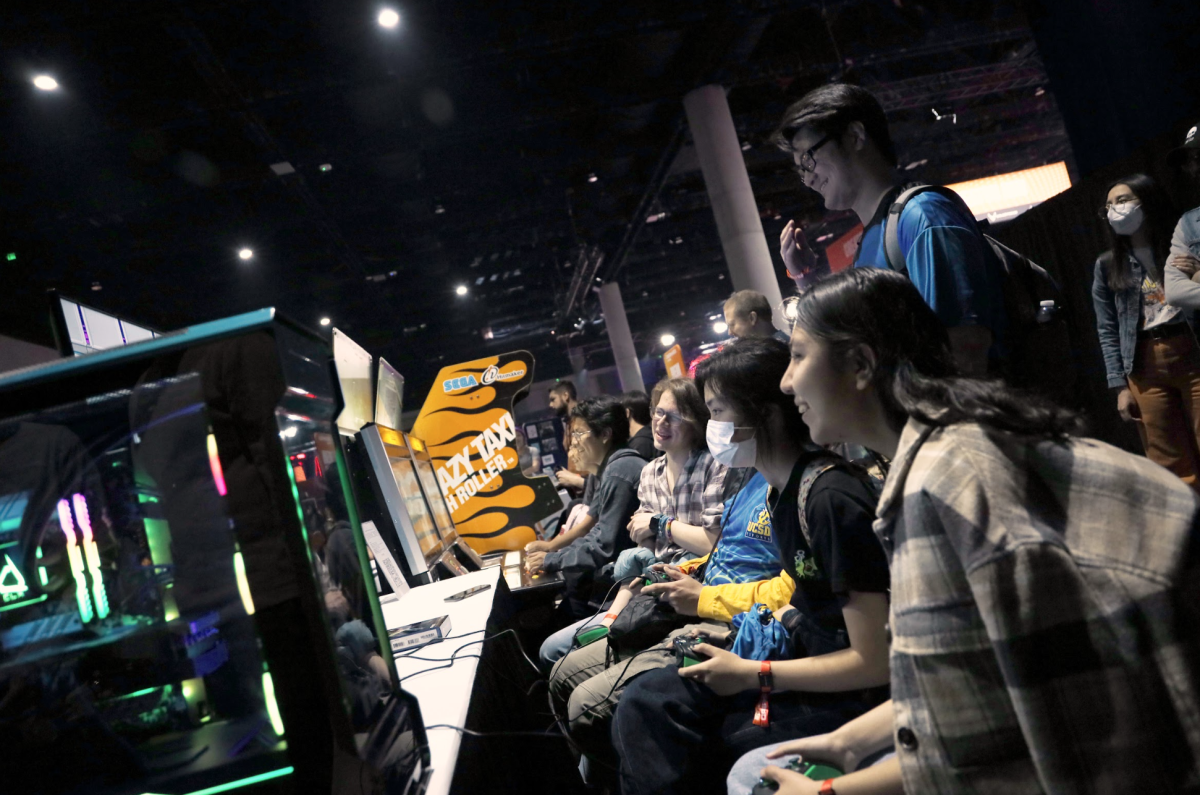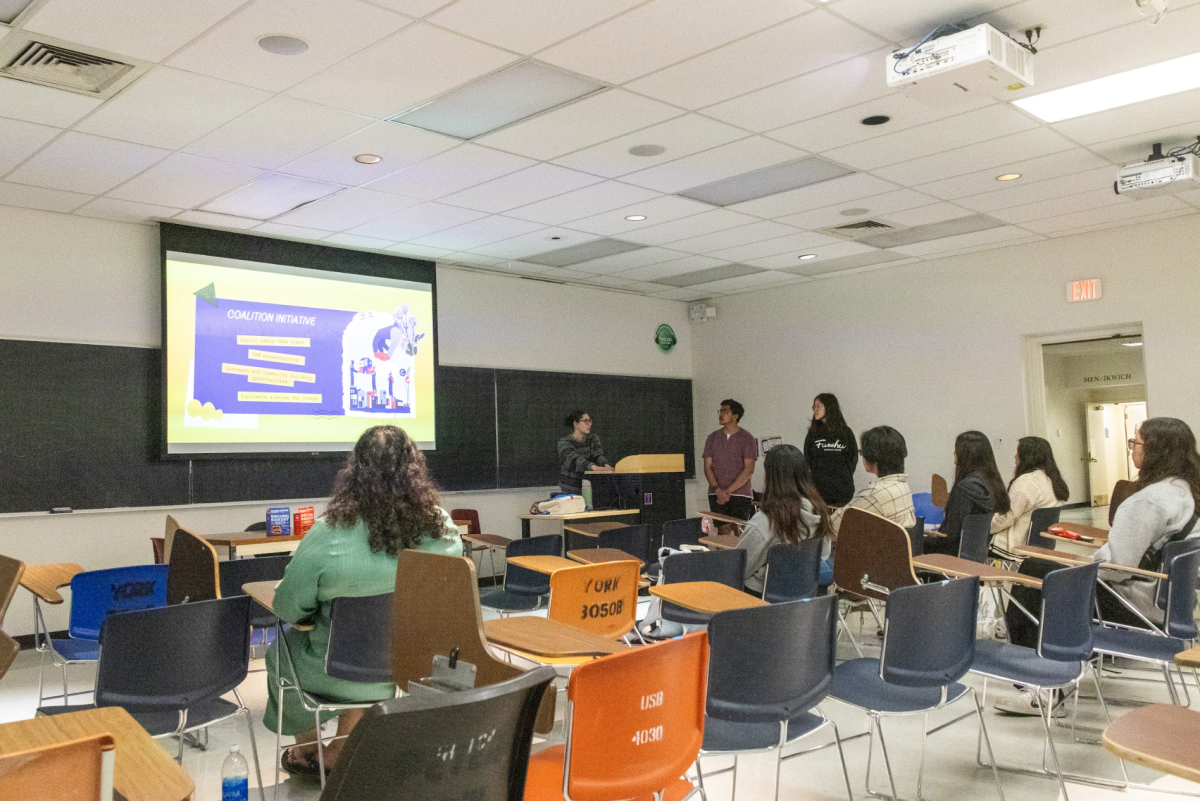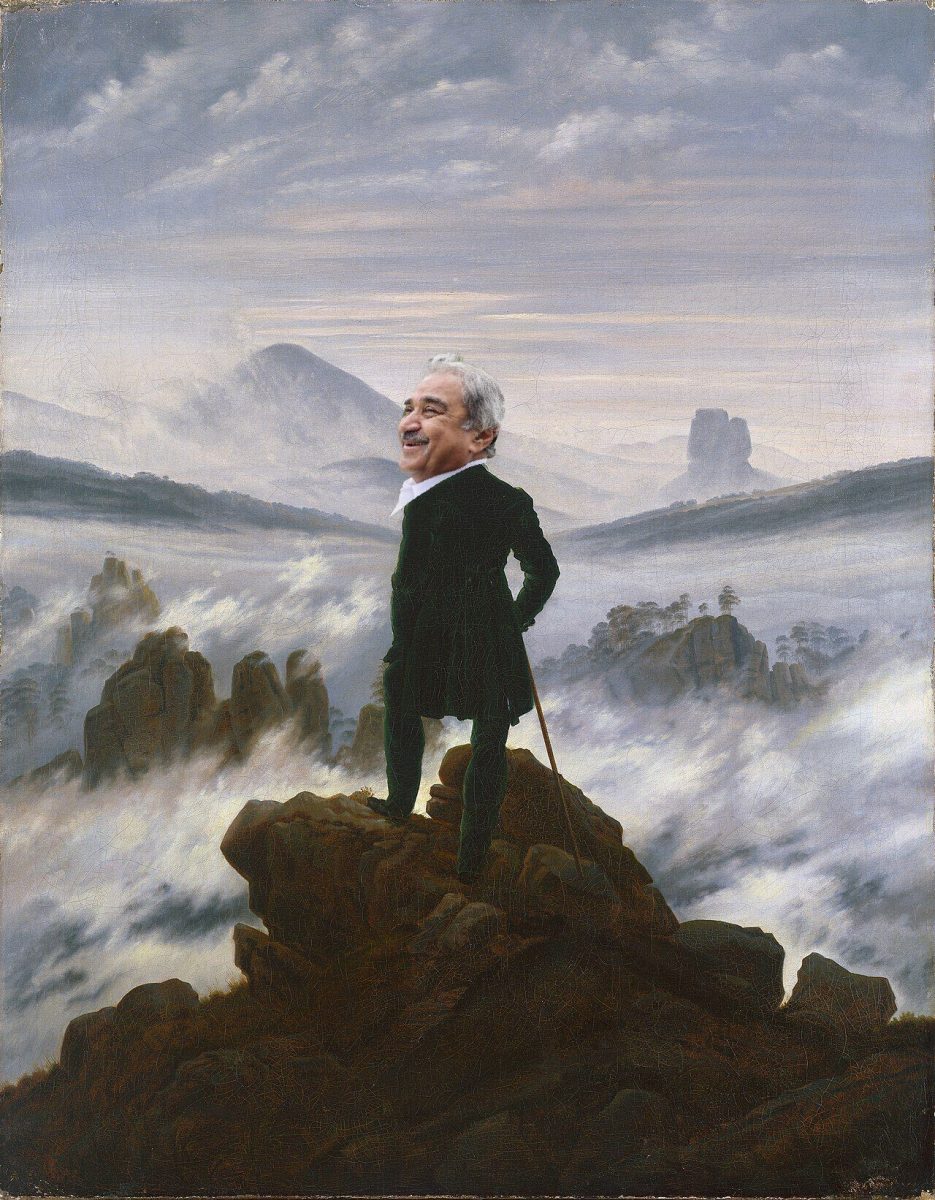Dadourian and Warren College senior Ali Hadian are the station’s new general managers — installed by the A.S. Council last quarter to launch a rebranded version of SRTV, after controversial content brought UCSD national media attention in 2005.
In February of that year, former Koala Editor in Chief Steve York broadcast a homemade video of himself having sex with an adult-film actress. Following a debate that weighed the preservation of freedom of student speech alongside concerns over tarnishing the image of UCSD, A.S. councilmembers caved under administrative pressure to regulate SRTV’s material. The council passed a bill to ban pornographic images, the broadcasting of “Koala TV” and York from the station.
On Nov. 3, 2005, after programmers aired an interview featuring York, the A.S. Council voted to shut down SRTV. Four days later, then-acting Assistant Vice Chancellor of Student Life Gary R. Ratcliff refused a request to reactivate the station’s signal.
The student body attempted to vote against the prohibition of sexual content in a January 2006 campuswide special election, but administrators ignored the vote and were still able to refuse a refuse a broadcast signal because the university owns the Triton Cable Network, which transmits SRTV programming.
Ratcliff and then-Vice Chancellor of Student Affairs Joseph W. Watson wanted to employ a review board to evaluate content before it aired, and wanted the station’s charter to ban “graphic depictions of sexual nudity.”
When the A.S. Council did not include Ratcliff and Watson’s demands in their charter, the university released its own “acceptable use policy” in October 2006.
Prior to that, SRTV had been allowed to come back on air in June 2006 under certain restrictions: The station could only broadcast between the hours of 6 a.m. and 10 p.m. That’s when Hadian joined the SRTV crew.
“The station itself was very outdated,” he said. “As far as SRTV itself went, there wasn’t much going on. It was pretty defunct.”
Hadian moved into a managing position after SRTV set up shop in a new Student Center studio and upgraded to new equipment.
“We got a brand-new space, but we had a lot of problems,” he said. “For the first two years of managing, there were a lot of obstacles in setting up the station and getting operational.”
Since then, the station has been shuffling along with the help of the Koala, whose members helped set up the studio and provided the station’s only content last year — in the form of a late-night talk show, on which hosts often got drunk and removed items of clothing while answering calls from around campus.
“They were filming their own shows, which did push [the] envelope as far as acceptable content [goes],” said Hadian, now in his second year as manager. “That upset [the A.S. Council], because we felt we were going in a backwards manner … SRTV is not supposed to show that in the first place.”
In October 2009, Gupta decided to motivate the production process by exercising effective regulation, and put SRTV under the council’s control. In the past, SRTV acted as a student organization funded by student fees; now, it is considered an A.S. Council service. Gupta said that a new policy will ensure all content be under council jurisdiction, and will require all programming to be filtered through principal members of SRTV.
So Gupta opened the application process to hire new leadership, and held a series of interviews with aspiring station managers.
In the past, outgoing SRTV staff members made recommendations to the A.S. Council on who they wanted to be general manager.
According to AVP Student Services Meredith Madnick, the council also met with prospective applicants face to face, outside of the formal interview, and made their expectations of the station’s management clear.
“We’re now making SRTV not simply a venue where students can produce content, but it is actually an entity that is responsible for creating content,” VP Finance Peter Benesch said. “It’s actually not just a place where people who are bored and want to make a show go, it’s a place where you go if you want to become part of SRTV and be responsible for producing content … It’s a pretty big shift from what it [was] before.”
According to Madnick, council members made these managerial changes because they wanted to prevent possible injury to the station’s facilities and reputation, and reinstate SRTV’s previous recognition around campus.
Out of the five applicants, Hadian was chosen as a manager because of his familiarity with SRTV, and Dadourian because of his background in professional production.
“Ali is a very good station manager because of all the specialized knowledge he had in terms of what it literally takes to put on programs and how to run a station,” Benesch said.
Dadourian has worked as an actor, a production assistant and an office intern for Oscar-winning film producer Scott Rudin. Dadourian was also enrolled in a summer seminar at the USC School of Cinematic Arts and is a member of the Screen Actors Guild.
Though he was also a principal member of SRTV last year, Dadourian said he felt hesitant to become more involved.
“As a member, I didn’t really know that much about SRTV, and was just hesitant to get involved [because] stuff was poorly organized. It wasn’t an inspiring place to be involved,” said Dadourian. “Most of the members were from the Koala, and I didn’t like how they do film productions.”
So when Gupta opened up the managing position again last quarter — under the pretense that the station would be more heavily regulated by the A.S. Council — Dadourian was quick to apply.
“That’s when I kind of decided that I’m not going to sit around and be a follower,” he said. “I really wanted to help people to get things going and bring a more professional side to SRTV.”
In his new position, Dadourian said that he feels a greater power to push things along.
“As general manager, I feel like I have the responsibility now to make sure that stuff happens. I really enjoy being able to get things going because when I was a member, I took a more observational role and wasn’t able to organize stuff.”
Madnick said she and the two managers will regularly keep in touch, and content-approval forms will be used to regulate the shows before they air.
Warren College senior Shane Grant, who has been working as an SRTV technical director for three years, thinks the two-pronged management system (Hadian and Dadourian) is better than having one manager.
“It’s a bit better actually. If you only have one person in charge and you can’t get in touch with that one person, then things get stalled,” he said. “But with two people in charge, you can split the responsibility. I guess it can get a little bit more hectic, but I think we’re pretty organized.”
However, current members of radical humor newspaper the Koala — a student organization that has been airing its content on SRTV since the ’80s — have expressed disappointment with the new system.
“I don’t really agree with the whole co-manager position that they’ve assigned. I think it creates a dichotomy [where] they can’t do as well as they could, but they’re making a good effort and they’re making good plans,” associate Koala editor Wes Field said. “I don’t agree with the ideas of going ‘Hollywood’ and getting paid and getting advertisement — but I don’t know if that’s the whole purpose of SRTV. I think it’s about entertainment.”
Dadourian said he plans on establishing SRTV as a respected media outlet for all facets of student life, from academics to social activities around campus.
“I want to take away
the prejudice about how ‘socially dead’ the campus is and bring the campus together,” he said.
Though Channel 18 is still no more than static, station managers and A.S. council members seem confident that several shows will launch later this week.
“Thanks to our new managers at SRTV, we’ve actually exponentially increased the amount of programming that it covers,” said Gupta. “The amount of stuff that’s going to hit the network is amazing. The station came from being nearly dormant last year to being very active in filming different events across campus.”
Dadourian and a small crew is currently filming commercials for student organizations and making a music video for Lady Gaga’s “Teeth.”
The psychology-based cooking show “Cooking with Dr. D.” aims to release academic anxieties: The show features a clinical psychologist from Los Angeles who discusses stress-management strategies by cooking.
“Triton Vision Recap” — in its pre-programming stages, according to Dadourian — will feature sports updates, and “Will It Chop?” will be compromised of one-minute videos that feature a katana (Japanese sword) chopping household items like keyboards and phones.
“It’s a good illustration of how we can have TV shows that are more professional and serious, and that we can also have shows that people just shoot in their backyard,” Dadourdian said.
Another proposed show aims to interview UCSD professors about where they came from and what opportunities they have for students.
“It’s introducing the diverse professors we have at UCSD to the student body; it’s a way for students to get involved,” Dadourian said.
So far, the station managers have spoken to John Moore, a linguistics professor who dropped out of college to pursue flamenco dancing in Spain.
SRTV will also feature a weekly address by Gupta — giving updates on A.S. Council and Office of the President operations — along with sports games, student-org events and on-campus concerts.
“What we’re witnessing now is the rebirth of SRTV as something more mainstream in campus life,” he said.
Koala members have made it clear they plan on staying involved with SRTV by providing comedic content and focusing on student-life counterculture. According to Field, the Koala will still be hosting a talk show (similar to last year’s) where students can call in and discuss the “topic of the day.”
“Now that SRTV is back, we’ve been waiting the whole quarter to get started. We think it’s going to be something that people can be excited about,” Field said. “We want to do a lot more with pre-recorded stuff.”
So far, he said they have written a comedy sketch on a self-defense class with Tiger Woods. “We’ll show you how to defend yourself if you’re a 120-pound blonde girl,” Field said.
They also plan to film parties and host recreational activities like “Fraternity Olympics”.
Following Federal Communication Commission guidelines, the Koala will be broadcasting their shows after 10 p.m., as they will be expected to air “indecent” material.
“The only thing that they’re regulating is porn, because that’s what we did in the past. So we won’t be airing any porn … [not] immediately, anyway,” Field said. “But other than that, we still generally follow the guidelines. We’re going to air out the tent, so we really won’t be doing anything that anyone can really get upset about.”
Film-crew members who contribute to show production will be able to earn money in a work-study program that Gupta implemented in SRTV’s new charter.
“I think it’s going to be successful; it’s going to lead SRTV to be much more productive and really record a lot more of student life,” Gupta said. “They’ve been going around and recording student-organization events, helping me record my podcast and addresses. They’ve been really proactive in recording events that students want to have recorded, and maybe want to watch later on if they can’t make it to these events.”
Now that SRTV is considered an A.S. service, it will receive additional funds — a result of the activity-fee referendum last year. In the current A.S. budget, SRTV has $11,000 to spend this year on operating expenses and the work-study program.
With that money, the station has already bought two new high-definition video cameras and has converted from an all-analog to an all-digital station, so content can be uploaded directly from cameras and computers.
“We have state-of-the art, cutting-edge technology as far as broadcasting and filming equipment goes,” Hadian said. “Before, we were basically running off VHS tapes. We had an entire back room full of them, so it was really hard to find the content we needed.”
To increase viewership, Gupta said SRTV is in the process of making content available online so that students living off campus can tune in.
“What we’re trying to do is gain more of an off-campus presence than we have before, to reach the other half of the student community that doesn’t have access to the on-campus cable,” said Gupta. “We’re doing this by trying to get our feeds online, so you can watch SRTV right in the convenience of your own computer.”
But there is still much to be done. Grant said the because the studio floor is made of tile instead of carpet, unwanted sounds become more noticeable — like ATM transactions, drunken conversation from Porter’s Pub and blaring beats from the Deejay Vinylphiles Club next door.
The A.S. Council and SRTV’s new management seem the most optimistic about the station’s new changes.
“I really want to see SRTV shine,” Dadourian said. “I’ve been here while SRTV’s kind of been in the dumps, and I really want to see it do well. I really think it has the potential to do well and be successful.”
Five years from now, Hadian said he sees SRTV as a grounded, professional television station.
“If we don’t run into any more outrageous content, like porn being aired again, we’re going to be pretty robust on campus,” he said. “SRTV will be a popular go-to station for the on-campus population.”
Readers can contact Regina Ip at [email protected].







